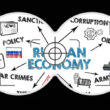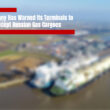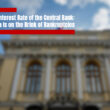Since 2022, Russia has faced unprecedented economic sanctions from Western countries in response to its military aggression in Ukraine. These sanctions are aimed at limiting Russia’s access to strategic technologies, financial resources, and international markets. Despite this, the country has shown an ability to adapt to the new conditions, focusing on enhancing its military capabilities. In this article, we will explore how Russia has managed to continue increasing its military potentials in the face of sanctions.
Reprofiling of Industry
One of Russia’s main strategies has been the reorientation of civilian production towards military needs. Factories that previously produced consumer goods have started manufacturing military equipment and arms. This includes tanks, drones, artillery systems, and other types of military products. The state actively supports these changes, encouraging enterprises to collaborate with the Ministry of Defense.
Engaging Alternative Suppliers
One of the key challenges Russia has faced under sanctions is limited access to Western technologies and components. However, the country has managed to find new partners in countries that did not join the sanctions. In particular, China, Iran, and other states have become important suppliers of technologies, materials, and components necessary for arms production. This has allowed Russia to maintain production rates despite the difficulties.
Development of Domestic Technologies
In response to the sanctions, Russia has also begun investing in the development of its own technologies. The state promotes the growth of research institutes and companies that are engaged in creating advanced weapon systems. Key areas include drone technologies, electronic warfare systems, and cybersecurity. Isolation from Western technologies has spurred the development of domestic research and the creation of alternative solutions.
New Funding Strategy
To support military expenditures, Russia has had to revise its funding approaches. The rise in energy prices, particularly for oil and gas, has allowed the state to maintain a certain level of financial stability. Additional resources have been directed towards defense spending, including the modernization of the military and the procurement of new technologies. Furthermore, Russia has actively sought foreign investments, particularly from countries that do not support the sanctions, to finance its military-industrial complex.
Smuggling and “Gray” Markets
Smuggling and “gray” markets have become another key component of Russia’s adaptation strategy. Illegal supply channels for components and technologies allow the country to circumvent sanctions and sustain military production. This aspect has become especially important in the context of the prolonged military actions in Ukraine, where the need for rapid replenishment of weapon supplies is critical. Russia’s adaptation to sanctions has proven to be a complex yet highly effective process. Thanks to the reprofiling of industry, the search for new suppliers, the development of domestic technologies, new financial strategies, and the use of gray markets, the country has managed to continue enhancing its military capabilities. While international sanctions remain a significant challenge, Russia demonstrates an ability to adjust to new conditions, allowing it to maintain strategic autonomy in the military sphere. However, it is worth noting that this adaptive effort is not without its obstacles. Issues with funding, a lack of access to cutting-edge technologies, and internal economic difficulties may eventually create serious barriers to further development of military infrastructure. Thus, although Russia currently shows an ability to adapt, future challenges could significantly impact its military capabilities and overall economic situation. In a global context, these changes could also have important implications for international security. The increase in Russia’s military capabilities may lead to heightened tensions and could prompt other countries to raise their own military expenditures and strengthen their defense strategies.








